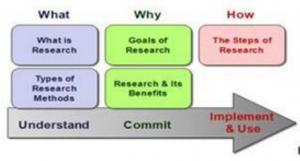
“Change is the only constant” – Heraclitus. The marketplace is changing at breakneck speeds due to changes in technology and new product developments. Customers’ perceptions and preferences are greatly influenced by the changing world. Fads come and go. How important then, is market research and is it still relevant to organisations since change is the only constant?
Let’s start with the definition of market research. According to Longman Dictionary, it is “a business activity which involves collecting information about what goods people buy and why they buy them”. ESOMAR World Research defines it as “the systematic gathering and interpretation of information about individuals or organisations using the statistical and analytical methods and techniques of the applied social sciences to gain insight or support decision making”.
Based on the above definitions, market research is not only relevant but critical in today’s fast changing marketplace as it provides us with the necessary “tools” to gather “information” to cope with change. Organisations who fail to keep abreast with current information about their customers and competitors will quickly fade like a passing fad.
How do we then ensure that we make the best use of market research? There are five points you should consider.
First, clearly identify your information gaps. We need to ask ourselves what information my organisation needs, but do not have (or information which we have but is outdated).
Second, find the best way to gather this information. Will desk research be sufficient or do we need to conduct primary research? If we need to conduct primary research, do we use quantitative or qualitative methods? If you are unfamiliar with the wide range of methodologies (just to name a few – focus groups, in-depth interviews, street intercept, online panels, central location testing, mystery shopping) and their appropriateness for your information needs, it may be wise to engage a reputable market research firm.
Third, ask the rght questions, in the right way, to the right persons. Poorly constructed questions will give you bias and inaccurate findings. Asking the wrong respondents will provide you with findings that are not a reflection of your target customers. Such pitfalls will render the information and data you have collected useless.
Fourth, once the information and data has been collected, we need to ensure that the information and data is analysed and presented to all relevant parties in our organisation. For example, this may include cascading down some of the relevant findings to the sales force so that they better understand the customers they deal with on a daily basis.
Lastly, organisations must avoid taking market research as an end in itself. Market research is a means to an end. Organisations must act on the findings and not just shelf the market research report in a cabinet as another task completed.
As Sun Tzu said “Know your enemies, know yourself and you shall emerge victorious a hundred times in a hundred battles”. Let me leave you with an adaptation of this quote – know your customers, know your competitors, know yourself and you shall emerge victorious a hundred times in the marketplace.
Article by Alphonsus Tan
Alphonsus Tan is the Principal Consultant at Consumer Minds International Pte Ltd, a market research firm. He also lectures and trains on the topics of Market Research, Economics and Customer Service. He is also the Facilitator for Softskillsnet Pte Ltd, and conduct “Nuts and Bolts of Marketing Research” for Marketing Institute of Singapore. This article also appeared on e-Marketer enewsletter, 7 Sep 2011, http://www.i-marketer.org/userfiles/RPP201197152515.pdf

